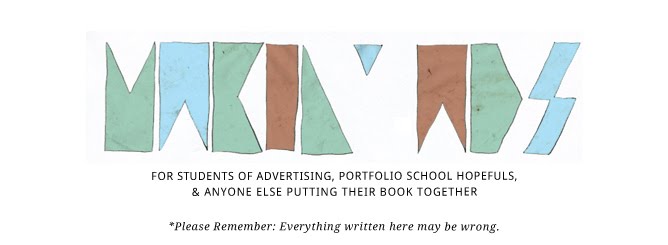When I was in portfolio school, one thing was drilled into me over and over and over:
It's all about the big idea.
Okay, it's not a lie. But it is only a half-truth. Because having brilliant ideas does not mean the client is going to buy them. As Seth Godin pointed out in
a recent post, "Selling ideas is a fundamentally different business than having ideas."
He also writes, "The quality of ideas is not a factor in whether or not you will be in a position to have a chance to sell those ideas."
In other words, you can have a Titanium Lion-quality idea get killed in a client meeting because you thought you'd wing your presentation. Or because your account team, creative director or president doesn't recognize it as a Titanium Lion-quality idea.
You need to be concerned with having big ideas. But it's not all about the big idea. You have to have the skills, the team, and the perseverance to sell them.
Make sure you're at an agency that will champion big ideas. If the client needs to be challenged, make sure you're at an agency that will do so diplomatically, but thoroughly. And make sure you either develop the presentation skills you need to sell your work, or have someone you completely trust to do so for you.















